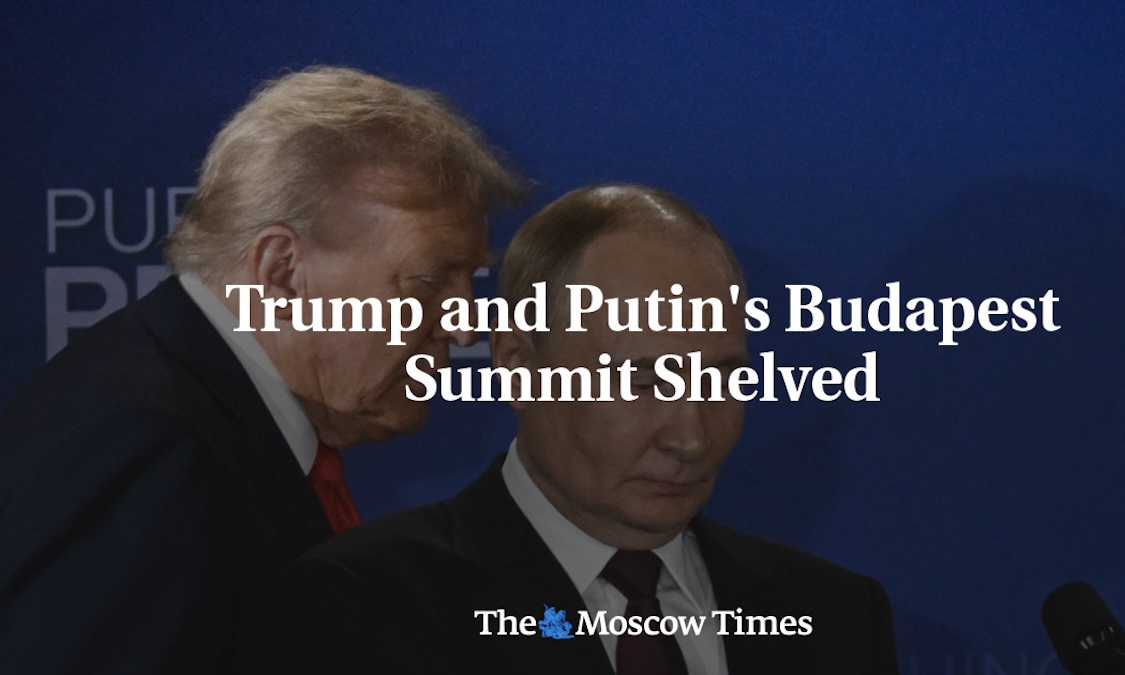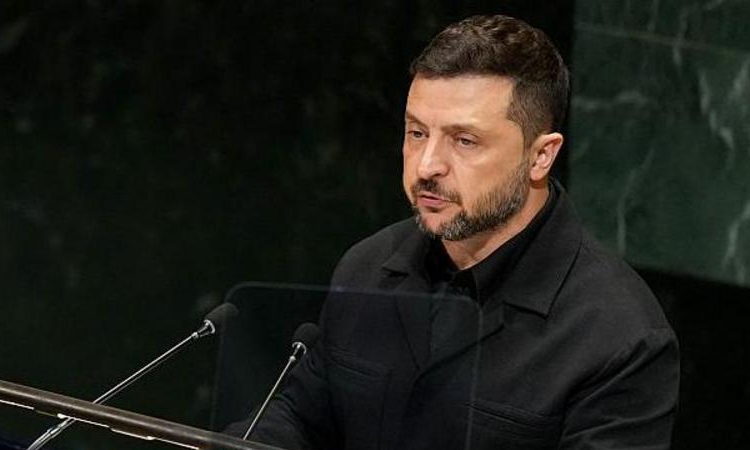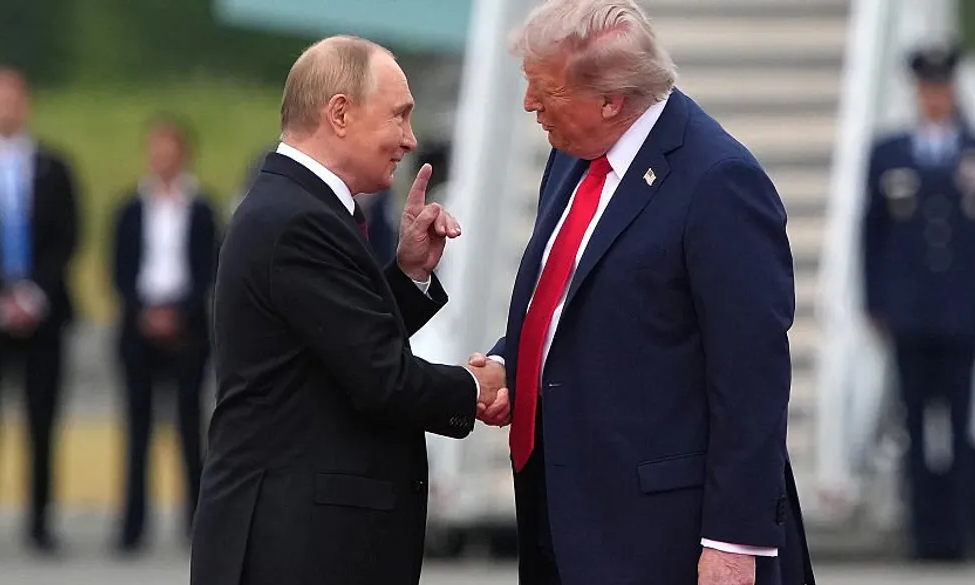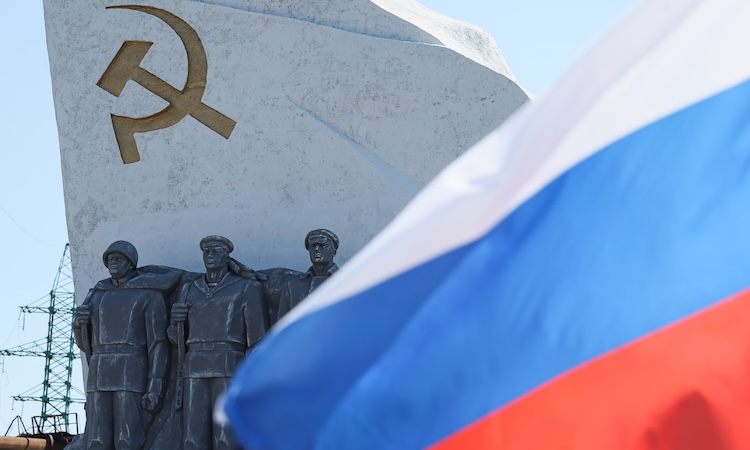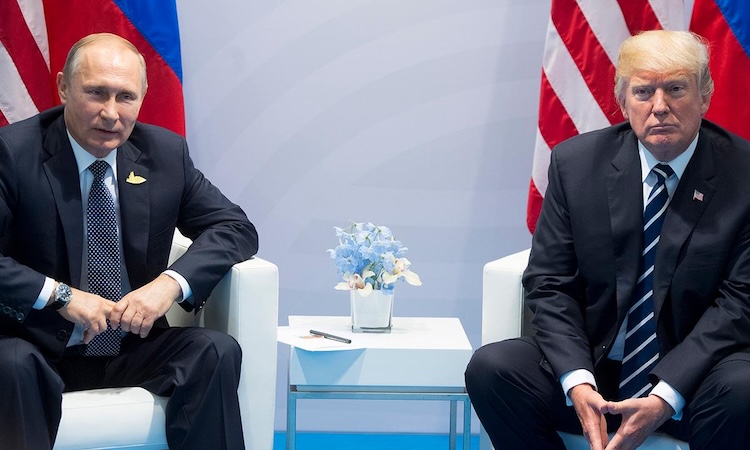US president Donald Trump’s failure to follow through on the Alaska peace talks held between the presidents of the USA and Russia in August, choosing instead to renege on the understandings achieved there, has made it more likely that the Russian military will be obliged to deliver peace through force of arms.
At various times it had seemed that President Trump actually meant what he said; that he was prepared to give up the pious demand for an immediate ceasefire without conditions (aimed merely at giving Kiev’s flagging military a chance to pause and regroup) and focus instead on the need to address the root causes of the war and the necessity for a comprehensive political settlement that does not exclude territorial adjustments.
If Trump had managed to stick with this undertaking, there seemed at least the possibility that some progress might be made on the diplomatic front and fewer men would have had to die in order to reach a reasonable final settlement.
Alas, no sooner had Trump returned home than he resumed his former intransigent stance, egged on by the armchair warriors in the US Congress as well as by prime minister Sir Keir Starmer in London and president Emmanuel Macron in Paris.
As if to make up for lost time, the US president took further steps to escalate the war, recklessly playing with the possibility of sending Tomahawk long-range cruise missiles to Ukraine and thus raising the spectre of a nuclear exchange. After some more prodding from Moscow another presidential summit was mooted, to take place in Budapest, but this time the plan was cancelled before it even got off the ground.
As well as contradicting himself on policy every time he opens his mouth, Trump also cannot keep track of which enemy is the most deserving of his ire on any given day. The day after his phone call with Russian president Vladimir Putin on 16 October, in the course of which the Budapest summit was agreed to, Trump apparently lost his rag with the Ukrainian actor-stooge president.
According to the Financial Times: “Trump pressed Ukrainian president Volodymyr Zelensky to make concessions to Russia in a tense White House meeting when he tossed Ukraine maps around, saying he was ‘sick’ of them.” (Donald Trump-Vladimir Putin Budapest summit axed following Moscow memo by Max Seddon et al, 31 October 2025)
In fact, the US ruling class is heartily sick of Project Ukraine as a whole and would gladly be shot of it, if only it could find an acceptable way out. One way or another, with or without the benefit of a diplomatic screen to soften the humiliation, the reality is that the proxy war has been an unmitigated disaster for US imperialism.
And it is clear as crystal that there is going to be no return to the status quo ante.
However much hot air is expended in stressing the ‘unity’ of Nato and the collective west, the Europeans, even whilst flagellating themselves for not spending enough on their own defence budgets, are also doing the utmost to propel the USA back into the fray.
As the Financial Times noted recently: “Though Trump did endorse Putin’s call for a comprehensive peace deal, the USA has since reverted to demanding an immediate ceasefire. ‘When they are only talking about an immediate ceasefire, and then let history judge – that’s a radical change,’ Lavrov said. ‘That also means that the Europeans are going all out to twist the arms of this administration.’” (Our emphasis, ibid)
However, despite the European Union’s best efforts to persuade their US partners-in-crime not to lose interest in Project Ukraine and not to pursue a diplomatic path that excludes Zelensky and instead deals directly with the Russian victors, the Europeans are in no state to take up the slack in world leadership themselves, no matter what fantasies Macron and Starmer may entertain to the contrary.
France, Germany and Britain are all in the full throes of economic and political crisis, and it will take more than penny lectures from EU president Ursula Von der Leyen to improve matters.
‘Reparation loan’
The economic crisis engulfing the EU member states (including Britain, which is to all intents and purposes back in the European fold) has been magnified by the massive sums spent on the war, wringing out exchequers and arsenals alike.
Yet EU members, so far from prioritising efforts to address the cost-of-living crisis, are under enormous pressure to beg, borrow or steal yet more cash to send to Ukraine to keep the war going. Zelensky is unparalleled in the begging department; the borrowing and stealing are being coordinated by the EU.
All eyes are on 18 December, when the next EU leaders’ summit is scheduled. Up for discussion will be a plan to finance a €140bn ‘reparations’ loan to Kiev. The EU executive hopes that by means of a complex (and probably illegal) rigmarole by which interest accruing from Russia’s frozen assets (held in Belgium’s Euroclear security depository) can act as guarantor for a loan advanced by the EU Commission.
This is being sold as a cunning way of making Russia pay for the war, with the loan being paid back by Ukraine when it has won the war and Russia is obliged to pay reparations! Of course, nobody (with the possible exception of the crowd around Zelensky) believes a word of this.
Russia is winning the war, so the idea of off-setting the EU’s loan against some imaginary reparations to be paid by Moscow at some time in the future is certifiable. When the loan comes due for repayment, it would be to Euroclear and Belgium that creditors would first turn, and thence to the EU and its member states, with the burden soon crushing the working population of each country.
Unsurprisingly, Belgium is less than keen to expose itself to retaliation by Russia against anybody who wants to play games with Russia’s stolen funds, regardless of whether this relates to the interest owing or to the original investments.
So Belgium has refused to back the scheme if all the rest sit on their hands and leave Brussels to take the rap. The Belgian prime minister has insisted that the scam could only work if it is undertaken by all members, saying: “If you want to do this, we must do it together.”
The USA, whilst eager to see EU countries bankrupt themselves over the war, has no intention of making itself a hostage to fortune by seconding their crackpot schemes for tapping into stolen Russian wealth. Nor is the adventure finding universal assent within Europe.
Slovakian prime minister Robert Fico has urged the EU commission to come up with some other way of assisting Ukraine. He was categorical, saying: “Whatever decision is made, I want us to be completely clear about this in Slovakia. The government I lead will never, I emphasise, never, sign any loan guarantee for Ukraine for military expenditures. We will also not allocate a single cent from our state budget for this purpose.” Hungary takes the same view.
The frozen assets are a part of the overall EU sanctions package that will come up for ratification at the next EU leaders’ summit on 18 December. That package must be supported unanimously every six months, otherwise it will fall. This means that just one negative vote by an EU member state could sink the whole raft, with the assets returning to Russia.
No doubt the monopoly capitalists will slither through somehow, finding some weasel-worded formulation that ‘reconciles’ their avowed respect for private property with the wholesale larceny of Russian assets. But the days when imperialism could brush aside such concerns and emerge unscathed are fast slipping by.
The anti-imperialist forces are hammering Nato’s nazi stooges in Ukraine and there is nothing that the USA and its European lackeys can do about it.
